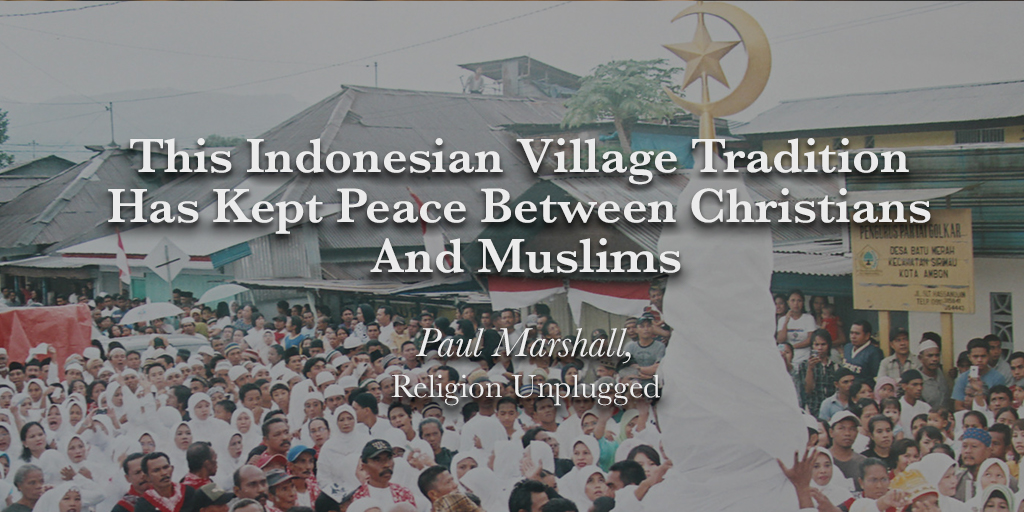Paul Marshall, Wilson Professor of Religious Freedom at Baylor University and Senior Fellow with the Religious Freedom Institute, writes at Religion Unplugged that “Peaceful, and even loving religious co-existence, does not require secularism or relativism, nor a belief that our differing beliefs do not matter.”
To illustrate this point, Marshall highlights the pela covenants, which are “formal relations of peace and friendship between many of the villages [of Indonesia’s Maluku islands].” These covenants have not only facilitated harmonious relationships between Christians and Muslims, but they have also been a source of healing and peace-building following religious conflict.
The religious communities in this region embody the kind of respect across differences that is so vital in our increasingly religious world, writes Marshall. They have achieved this peaceful arrangement, not in spite of their respective faith traditions, but because of a deep, even “fanatical” commitment to them:
This is not peace simply motivated by religious indifference or spiritual indolence. The villagers know that their respective beliefs are very different, they want to maintain their own religion, and they also strive to keep their children from leaving their faith, even to the point of forbidding intermarriage. But they help each other, and much more.
Near the end of the article, Marshall alludes to the relationship between these conditions of lasting peace in Maluku and religious freedom:
[Relations between Christians and Muslims in Maluku] show that secularity, the attempt to drive religion from the public square, is not a precondition for good religious relations. Pela relations call to mind Jacques Maritain’s stress on the importance of “civic friendship,” or John Courtney Murray’s view that the religion clauses of the First Amendment to the U.S. Constitution are “articles of peace,” not “articles of faith”—they are ways of living together, not fundamental doctrines.
Read the full article: This Indonesian Village Tradition Has Kept Peace Between Christians And Muslims
THE RFI BLOG

Myths of Religious Nationalism in America and Abroad

France’s Olympic Hijab Ban Violates International Law And Exacerbates Tensions

RFI Briefs USCIRF on Lessons from 25 Years of U.S. Designating Religious Freedom Violators

Thought Police: Protecting the People from Prayer

A Religious “Delaware”: Establishing a State Haven for Religious Corporations
CORNERSTONE FORUM

Challenges to Religious Freedom in Iraq and the Critical Need for Action

Public Bioethics & the Failure of Expressive Individualism

Religious Liberty in American Higher Education

Scotland’s Kate Forbes and the March of Secularism


